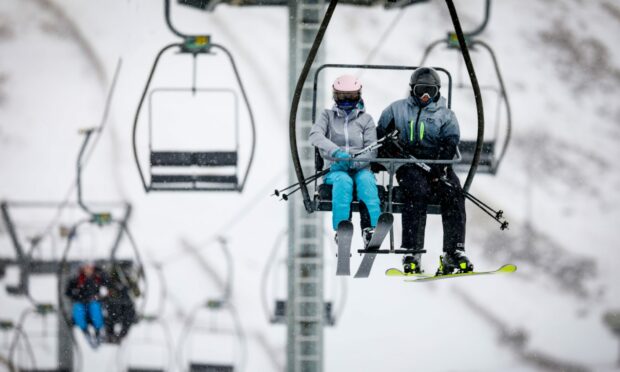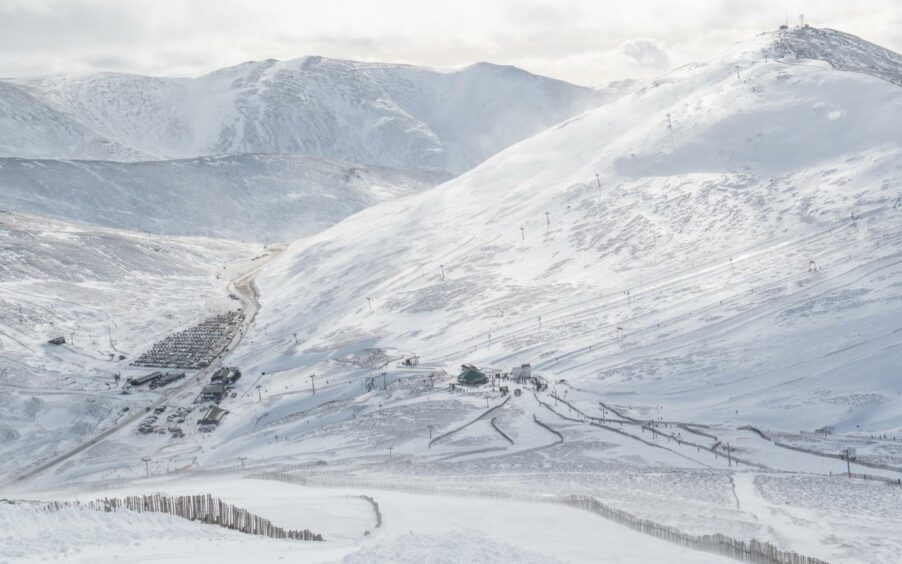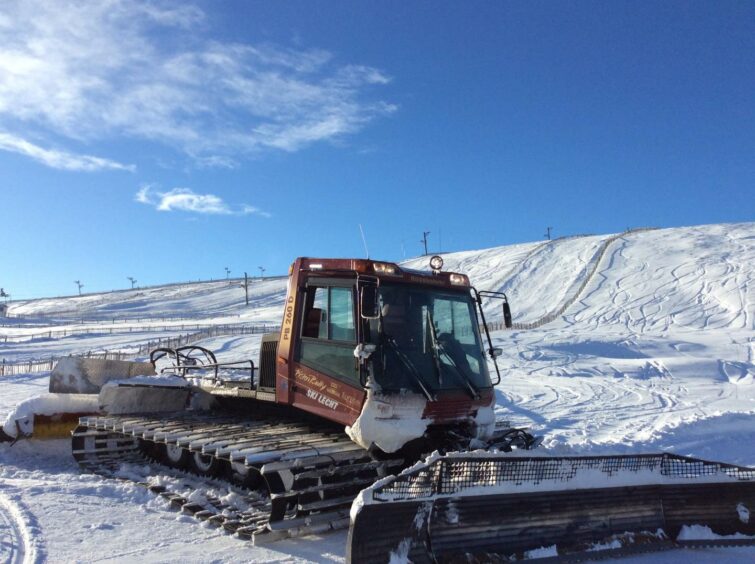Rocketing costs for fuel could put an Scotland’s beleaguered ski centre and snow sports industry on the back foot.
Changes in legislation due to come into force on April 1 mean the use of red diesel, used to power snow machines and ski lifts, will be outlawed in the ski industry.
Following two years of intermittent trading due to Covid, devastating storms and before that a lack of snow, it is a further blow to the Scottish industry.
The new legislation will force operators to pay costs – estimated at about £700 more a day – to use white diesel.
Operators say they should be afforded the same provision as other industries such as those in agriculture, horticulture, fish farming and forestry.
Diesel switch will cost thousands every week
David Farquharson, manager of Glenshee, said: “The cost change between red and white is of concern to us as we generate all our own power.”
At the height of the season, based on the number of litres used, it is understood the costs of providing the ski lift service at Glenshee is currently £1,258 per day. But a switch to white diesel will see them rocket to £2,108 a day.
He continued: “Not many people realise that Glenshee Ski Centre is not connected to the grid and never has been since the company was founded in 1962.
“The nearest grid connection for us would be about 12 miles away and there has never been an offer of connecting us to the grid.
“Costs to do that now, I imagine, would be of the order of £10,000,000s
“We have been looking into renewables wind turbine and energy storage for the last 10 years or so and a feasibility study was completed in 2017.
“However with costs likely to be in the region of £1.5million for a suitable system – it would require substantial grant aid to help us achieve our goal of substantially reducing our reliance on diesel generation.”
Glenshee concerns raised with Chancellor
The ski centre at Glenshee has been highlighted to Chancellor of the Exchequer Rishi Sunak in a letter from MP Andrew Bowie.
While there is provision in law for amateur sports clubs and travelling machinery for fairs and circuses – there are no exemptions for remote businesses such as ski centres.
Other ski centres, such as the Glen Nevis range, said it was on a journey to net zero – and already used hydro power for all its activities.
Mr Bowie, West Aberdeenshire and Kincardine MP, said: “Some organisations and sectors appear to fall through the gaps on the exemption list.
“One such example is the Glenshee Ski Centre, which uses red diesel to power ski lifts, snow-making equipment and emergency services communication.
“The centre will need to use white diesel, a change that would see running costs soar by more than 75%.
“I hope that this special case can be considered and a serious look at including an additional exemption clause is taken.”
‘Red diesel is essential to us’
Pieter du Pon is managing director at the Lecht Ski Company.
Though their lifts are powered electrically, he said the ban on red diesel is of “great concern” as it is used to power their snow grooming vehicles.
He said: “The increase of all power is of great concern for us. Red diesel is essential to us, not for the lifts as they are all powered electrically, but for the use of the snow grooming vehicles.
“These vehicles can not be used on public roads and are solely used for maintaining the ski slopes in a safe condition for the public to use.
“The amount they are used depends on the season of course but our previous seasonal costs for red diesel range between £13,000 and £20,000.
“The seasons are unpredictable enough with variations in snow fall and if skiing is to survive in Scotland then any increase in essential running costs can only have a large detrimental effect to that survival.”


